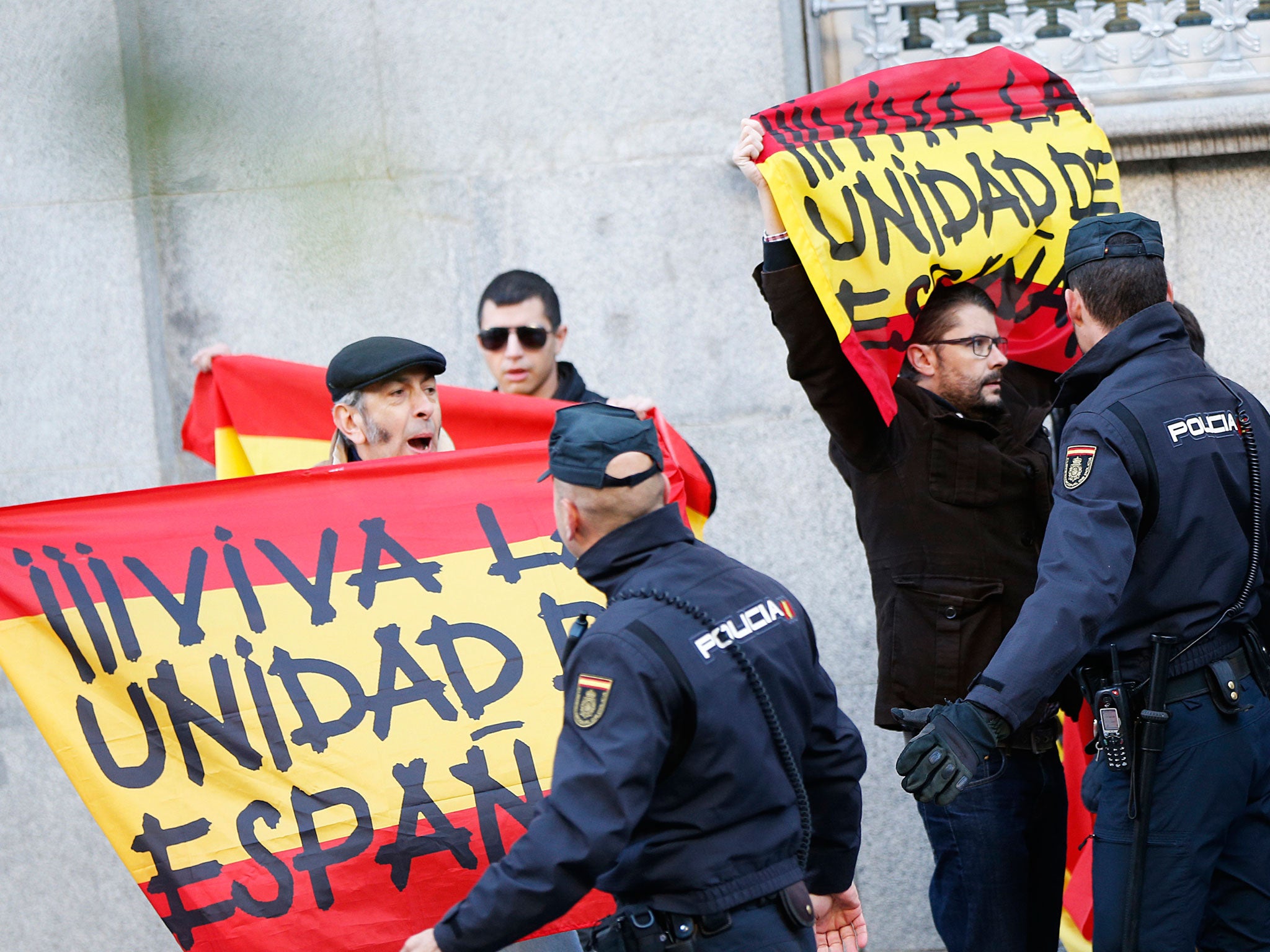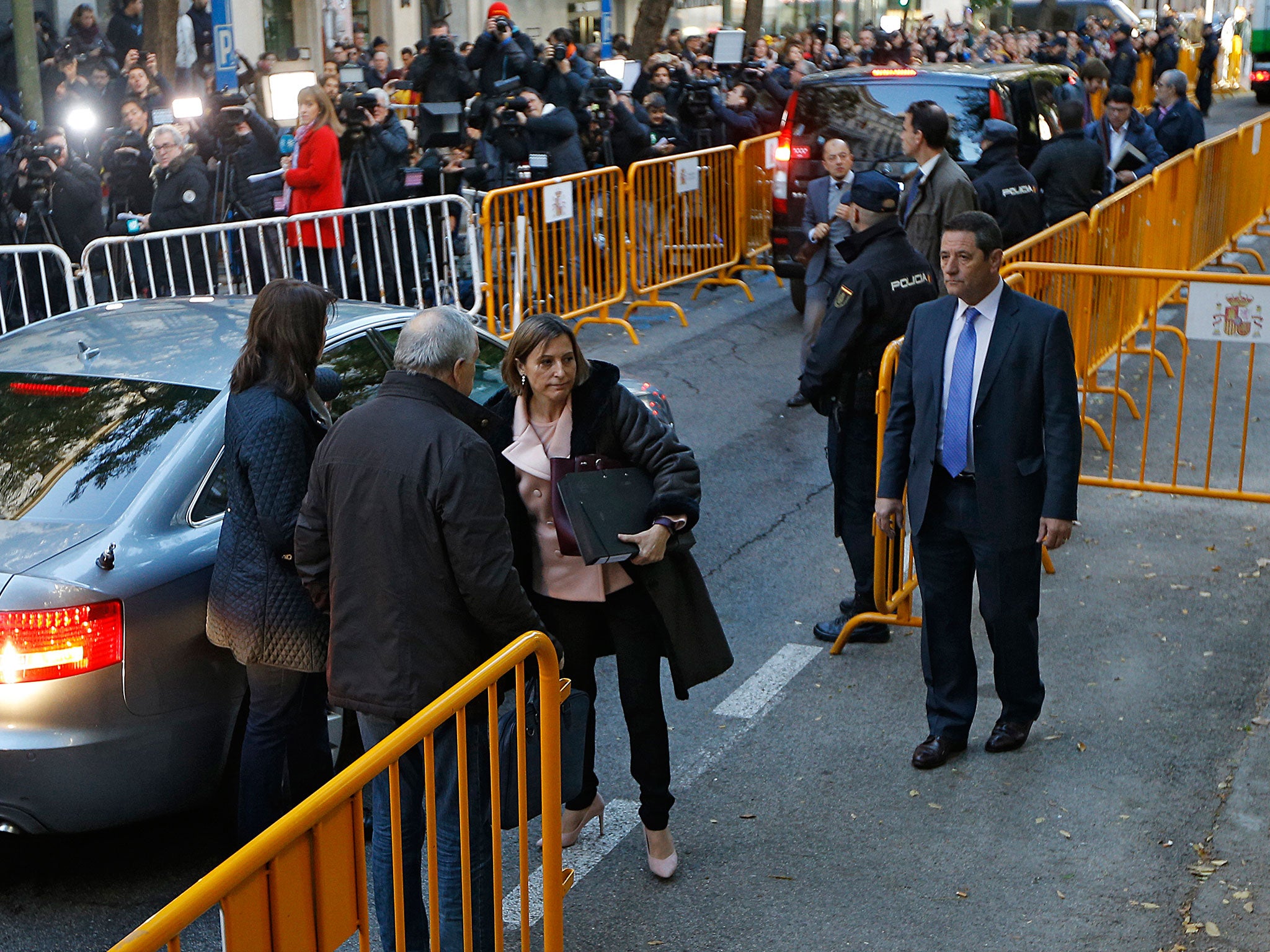Catalonia: Spanish judge jails top Catalan official over rebellion charges
Parliament speaker Carme Forcadell has a bail set at €150,000

A Spanish Supreme Court judge has ordered the Catalan parliament speaker to be jailed pending her release on bail of €150,000 (£133,000), amid an investigation into her role in the region's banned push for independence, a court source said.
Carme Forcadell, will be held in custody until the bail is paid, the source said.
Ms Forcadell and five regional lawmakers testified on charges of sedition, rebellion and misuse of public funds.
Four other officials would also be released on €25,000 bail, while a fifth would be freed on certain conditions without bail, the source said.
On Thursday, High Court Judge Carmen Lamela rejected an appeal presented by their lawyers for their release, a court spokeswoman said.
Ms Forcadell had earlier told the Supreme Court that the 27 October independence declaration was not legally binding, according to court sources, in a comment that could undermine the region's secessionist push.
The Catalan independence push has deeply divided Spain, dragging it into its worst political crisis since the return of democracy four decades ago and fuelling anti-Spanish sentiment in Catalonia and nationalist tendencies elsewhere.

But the struggle has also divided Catalonia itself, and cracks have begun appearing within the pro-independence movement.
On Tuesday, deposed Catalan president Carles Puigdemont's PDeCAT party failed to agree on a united ticket to contest the election with another secessionist party, making it difficult for the pro-independence camp to govern the region after the vote and press ahead with its bid to split from Spain.
Prime Minister Mariano Rajoy called the election following the independence declaration, which also prompted him to dissolve the Catalan parliament and fire Mr Puigdemont's administration.
Ms Forcadell at the time described Mr Rajoy's actions as a "coup" and an "attack against democracy".
The Supreme Court, which handles cases against defendants with parliamentary immunity, will decide whether to remand Ms Forcadell and the other five legislators in custody pending the investigation, or release them under certain conditions.
The same court decided on Thursday to take over two other cases against Ms Forcadell and the lawmakers currently overseen by the Catalan High Court, suggesting judges were looking to centralise all legal proceedings involving the independence vote in one court.
Spain's High Court has issued an arrest warrant on sedition and rebellion charges for Mr Puigdemont, who went into self-imposed exile in Belgium last week, and against four former members of his cabinet who are with him in Brussels.
"Mr Puigdemont has fled, but Mr Puigdemont will come back and answer to Spanish justice. I have no doubt (about this) at all," Spain's Interior Minister Juan Ignacio Zoido told Spanish television on Thursday.
The deposed leader appealed without success for EU intervention over the crisis.
European Commission President Jean-Claude Juncker, speaking from the Spanish city of Salamanca, called on Europe to reject all forms of separatism.
"Nationalisms are a poison that prevent Europe from working together," he said.
Reuters
Join our commenting forum
Join thought-provoking conversations, follow other Independent readers and see their replies
Comments
Bookmark popover
Removed from bookmarks